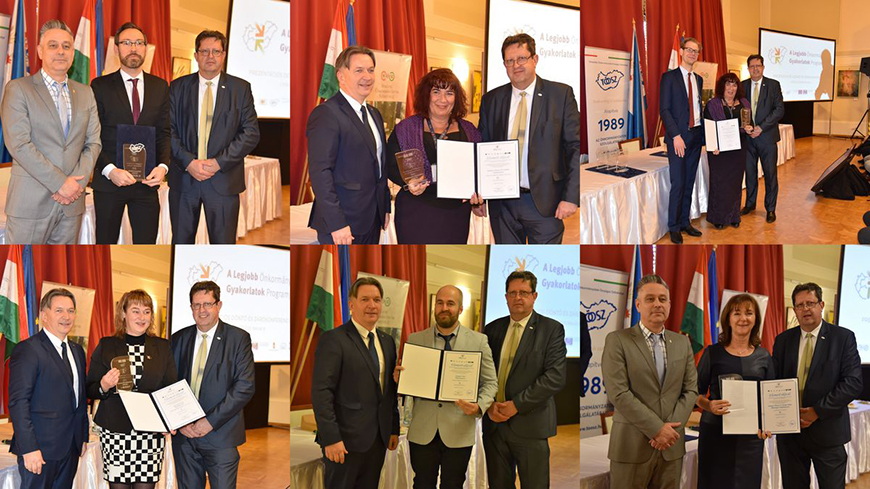Local governments in Hungary have been facing significant challenges over the last decade – from the effects of recentralisation processes to the financial impact of Covid-19 and the rise in energy prices. The European Union and Council of Europe joint programme ‘Local Government Public Finance Development and Municipal Capacity Building in Hungary’ seeks to tackle some of these challenges through the exchange of peer experiences, policy advice, innovative approaches to data sharing, benchmarking of local finance and public ethics as well as targeted capacity building. This week, two events in Budapest and Gödöllő aimed to contribute to local government innovation and good democratic practices.
On 7 February, the first meeting of a new Working Group on Local Finance took place at the European Youth Centre in Budapest. It brought together representatives of local government associations, the Ministry of Interior, Ministry of Finance, the State Treasury, State Audit Office, the Prime Minister's Office and local finance experts. The purpose of the Working Group is to contribute to strengthened dialogue between municipalities. Its initial focus will be on improving access and use of data needed for financial planning and management by local governments.
The following day, in Gödöllő, Pest County, the Award Ceremony for the Best Practice Programme was held. The event brought together around 100 participants from local governments and central authorities. The programme, designed to support the sharing of innovative initiatives developed at local levels, has been run since 2008 by the Hungarian National Association of Local Authorities (TÖOSZ) in cooperation with the Council of Europe's Centre of Expertise for Good Governance.
Six municipalities presented their good practices in the final round of the 2022 edition of the programme, reflecting the great diversity of Hungarian local governments – from capital city districts to regional cities to rural villages: Budapest’s District III and District XIII, the cities of Miskolc and Gyöngyös, Orgovány Municipality and the Municipality of Alsómocsolád. The themes addressed by their initiatives include supporting elderly residents to protect themselves against fraud, community policing, creating a ‘smart’ district for elderly people, a civil business school connecting NGOs and business leaders, citizen participation in municipal governance, and participatory budgeting. Read more about the good practices on TÖOSZ’ website.
Speaking at the event, Zoltán Kivés, Deputy State Secretary for Local Government at the Ministry of the Interior, emphasised the importance of public participation in Hungarian local government. Dr. Ferenc Gyergyák, Secretary General of TÖOSZ and Conrad Zellmann, Senior Project Officer at the Council of Europe highlighted the importance of European standards to the promotion of innovation and empowerment at local levels, in particular the 12 Principles of Good Democratic Governance.





